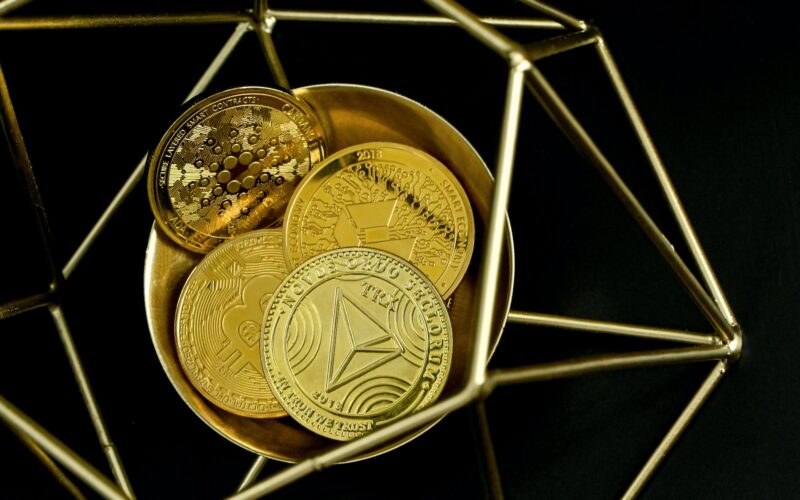Amidst the dynamic terrain of finance and investments, a transformative concept has arisen, fundamentally altering our comprehension and engagement with conventional assets: the groundbreaking notion of “Tokenization of Assets.” This innovative approach involves representing tangible and intangible assets as digital tokens on blockchain networks, enabling fractional ownership, enhanced liquidity, and streamlined processes. Facilitating seamless navigation within the Ethereum network plays a pivotal role, offering a user-friendly interface for users to interact with decentralized applications and smart contracts. The rapid ascent of this revolutionary trend in recent times has wielded a profound influence, reconfiguring our investment strategies across diverse sectors such as real estate, equities, and beyond. This comprehensive article takes an in-depth plunge into the realm of asset tokenization, meticulously examining its multifaceted significance, its array of benefits, and the far-reaching implications it bears across various industries. Researchers have been probing Ethereum’s susceptibility to speculative DDoS attacks to understand potential vulnerabilities in the network’s security.
Understanding Asset Tokenization
Asset tokenization refers to the process of representing real-world assets, such as real estate properties, stocks, fine art, or even commodities, as digital tokens on a blockchain. Each token represents fractional ownership in the underlying asset, enabling broader participation from investors who may not have had access to such opportunities before. This process has opened up a realm of possibilities, bringing together the traditional financial markets and cutting-edge blockchain technology.
The Real Estate Revolution
Real estate, long considered a cornerstone of wealth, has historically posed barriers to entry due to high costs and complex procedures. Tokenization has disrupted this norm by allowing properties to be divided into tradable digital tokens. Investors can now buy and trade fractions of properties, making the real estate market more accessible and liquid. This democratization of real estate ownership not only benefits individual investors but also injects liquidity into an otherwise illiquid market.
Unleashing Stock Market Potential
The concept of asset tokenization extends beyond real estate into the realm of stocks and securities. Traditional stock markets often involve intermediaries and complex processes. Tokenizing stocks streamlines this process, allowing for instantaneous peer-to-peer trading. This innovation can also potentially reduce fees and increase transparency in the stock market. Investors can diversify their portfolios with smaller investments across multiple stocks, further democratizing wealth distribution.
Benefits of Asset Tokenization
Asset tokenization brings forth an array of benefits that contribute to its growing popularity:
Liquidity Enhancement
Tokenization enhances the liquidity of traditionally illiquid assets. Real estate and other high-value investments become more liquid due to the ability to trade fractional ownership. This liquidity benefits both investors and asset owners, enabling quicker access to funds.
Global Accessibility
Blockchain technology transcends geographical boundaries. Investors from around the world can participate in tokenized assets, breaking down barriers that often restricted cross-border investments.
Fractional Ownership
Fractional ownership allows investors to diversify their investments across multiple assets, reducing risk and potentially increasing returns. This model empowers both seasoned and novice investors to build diversified portfolios.
Transparency and Security
Blockchain’s inherent transparency and security provide a tamper-resistant ledger of ownership and transaction history. This instills trust among investors and reduces the risk of fraud.
The Regulatory Landscape
While the potential of asset tokenization is promising, it exists within a complex regulatory environment. Various jurisdictions have diverse stances on how tokenized assets are classified and regulated. Clear regulatory frameworks are crucial to foster investor confidence and ensure the sustainable growth of this innovative trend.
The Future Outlook
The tokenization of assets has already disrupted traditional investment paradigms, and its influence is poised to expand. As blockchain technology matures and regulations become more defined, we can anticipate increased adoption across industries beyond real estate and stocks. Tokenization could reshape the way we invest in commodities, intellectual property, and even rare collectibles.
Conclusion
In the midst of this digital transformation, the tokenization of assets stands as a testament to the power of merging cutting-edge technology with age-old investment practices. From making real estate more attainable to revolutionizing stock trading, this trend offers a glimpse into the future of finance. As blockchain technology evolves and regulations adapt, the possibilities for asset tokenization are boundless. Investors, market participants, and stakeholders must keep a keen eye on this paradigm shift that has the potential to redefine the very essence of ownership and investment.
In conclusion, asset tokenization has the potential to democratize investment opportunities, increase liquidity, and reshape the financial landscape as we know it. This innovative trend holds the promise of bridging gaps, breaking barriers, and ushering in a new era of inclusive and efficient investing.




